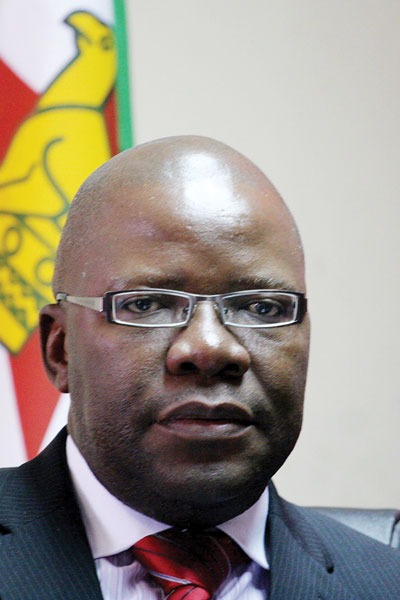
BY VENERANDA LANGA
Former Finance minister Tendai Biti has expressed reservations over clause (23) of the Finance (No 3) 2019 Bill, which will compel people who cannot prove that they sold their assets in Zimbabwean dollars to pay taxes in United States dollars.
The Bill sailed through the National Assembly on Tuesday evening and will give effect to fiscal measures in the 2020 National Budget.
Biti, who is the MDC Alliance’s Harare East MP, said three-quarters of the Bill implies that a third of all government revenues will be paid in US dollars or in multiple currency, which he said meant that Ncube was trying to “sneak the US$ through the back door”.
Section 23 of the Finance (No 3) Bill 2019 has an amendment which reads: “In respect of any sale of a specified asset that is purported to have been sold for Zimbabwe dollars, it shall be presumed that the specified asset was paid for in foreign currency at the US dollar market valuation of the specified asset on the date of the sale, and that the capital gains tax thereon shall be paid in US dollars accordingly, unless the seller provides documentary proof satisfactory to the commissioner that the specified asset in question was sold for Zimbabwe dollars.”
Biti argued: “I have a problem with the tone of this Bill, the Finance (No 3) Bill of 2019, where three-quarters of this Bill, including section 23 seeks to oblige the taxpayer to pay – whether it is capital gains or value-added tax (VAT) in foreign currency.
“My problem is that if we are going to oblige the citizen to pay everything in US dollars, then we are acknowledging that we are not ready for the de-dollarisation of the regime of multiple currency, and the problem we are going to create is that we are going to have a stream of revenues and virtually I would say a third of all government revenues is going to be collected in US dollars or in multiple currencies.”
Biti said this section imposes a fiscal matrix where there is need for two budgets.
- Chamisa under fire over US$120K donation
- Mavhunga puts DeMbare into Chibuku quarterfinals
- Pension funds bet on Cabora Bassa oilfields
- Councils defy govt fire tender directive
Keep Reading
“If we are going to be true to the provisions of Section 305 of the Constitution which says the Minister of Finance must present estimates of revenue and expenditure, it means that the minister must come with two Blue Books, one expressed in US dollars and the other expressed in the local currency because there are two different revenue sheets,” Biti said.
He said if that was not done then the system would be a nightmare for accountants, businesspeople and ordinary citizens on which currency to use.
“Is it US dollars or it is the regime of multiple currency? That is the problem that I have with Section 23 and with three-quarters of this Bill, they attempt to sneak the US dollar through the back door. In Shona we say, if you decide to eat a dog, eat the biggest one. Here we do not know whether we are eating a puppy or a small one,” he said.
Ncube said the clause was meant to ensure that tax on sale of assets is paid in the currency that they were sold.
“I can assure Biti that in this Bill we are going to eat the biggest dog; it is our time to eat the biggest dog. Clause 23 actually seeks to reinforce the declaration of receipts of income from sale of assets in Zimbabwe dollars, so in a sense by deeming that, your refusal to disclose that you received Zimbabwe dollars means actually you are hiding that. In fact, you must have received US dollars so we want to make sure that you pay in that currency of trade,” Ncube said.
“Otherwise why hide Madam chair? Why would you claim that you received Zimbabwe dollars and then you do not confirm that it was Zimbabwe dollars? We want to make sure you confirm that it was Zimbabwe dollars and show proof and you pay tax accordingly in Zimbabwe dollars. Otherwise, we will assume you are breaking the law and you want to make sure that you escape and pay in Zimbabwe dollars when, in fact, you received US dollars. So we want to make sure that the practice stops.”
Biti, however, insisted that Ncube should not hide that the US dollar is in use, but should repeal Statutory Instrument 142 of 2019 which banned the use of the US dollar for local transactions and allow the two currencies to operate together to force the exchange rate to fall.
“Dzivarasekwa MP Edwin Mushoriwa (MDC Alliance) said if Capital Gains Tax is charged in foreign currency, then it will mean that evaluators will be needed to convert the valuation in foreign currency which government said would burden accountants.
Ncube said it was simply a compliance clause.











